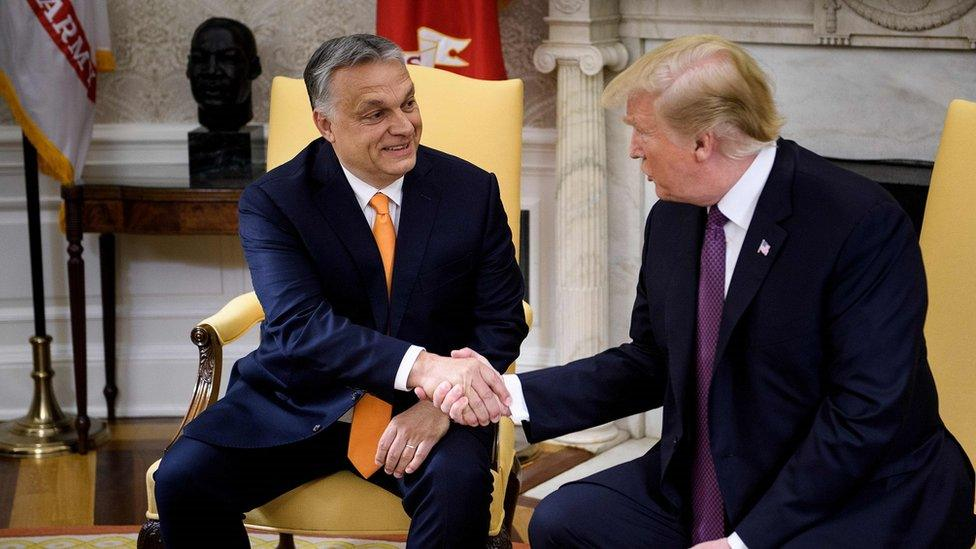In a world where global tensions rise daily, how does one find a path to peace? Recently, Hungarian Prime Minister Viktor Orban took a bold stance, praising former President Donald Trump after his meeting with Ukrainian President Volodymyr Zelensky. Orban’s support for Trump raises questions about leadership and conflict resolution. Can strong leaders truly make peace, as Orban claims?
Orban’s statement on social media was striking. He said, ‘Strong men make peace, weak men make war. Today President Trump stood bravely for peace. Even if it was difficult for many to digest. Thank you, Mr. President!’ At first glance, these words may resonate with many who prioritize assertive leadership. In times of conflict, does decisive leadership equal effective diplomacy? Orban seems to believe it does.
But what does this mean for the broader geopolitical landscape? The war in Ukraine continues, drawing global attention and mounting fears. The details of Trump and Zelensky’s conversation remain largely unknown. However, many analysts suggest that these talks focused on finding a negotiated settlement. Orban’s commendation of Trump paints him as a potential peacemaker, but what does that say about the complexities of the situation?
Orban has consistently supported Trump, aligning with nationalist and conservative policies. He has often championed the idea that less intervention is more. In fact, skepticism about Western intervention in global affairs is growing. The European leaders, once united in their approach, are now divided. Orban’s support suggests that he sees Trump as central to resolving the Ukraine-Russia conflict.
Reactions to Orban’s comments have been mixed. Some see it as a call for strong leadership, while others criticize oversimplification. Critics argue that the complexities of diplomacy require more than bold statements. They question whether Orban’s idea of strength truly fosters peace. Perhaps it’s time to dig deeper into what peace really means in today’s world.
As Trump engages in ongoing international discussions, his approach draws scrutiny. One can’t help but wonder if he can rally support for change or lead the U.S. into a more isolationist stance. Orban’s endorsement has reignited discussions around Trump’s foreign policy direction. How will this affect U.S. relations within Europe? Will it foster cooperation or deepen divisions?
In conclusion, Orban’s praise for Trump delivers a message that cannot be ignored. It compels us to examine the interplay of strength, leadership, and diplomacy during turbulent times. With the Ukraine crisis escalating, will Trump’s leadership truly offer hope for peace? Or will history judge this moment differently?
As we look ahead, these questions linger. The answers may shape our world in more ways than we can anticipate. In an era of uncertainty, one thing remains clear: voices like Orban’s are crucial in framing the narrative. Whether we agree or disagree, they challenge us to think critically about the future.




